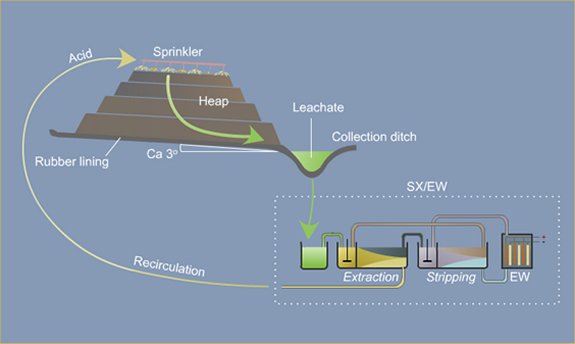Looks like March is off to a good start.I was encouraged to see the trading in Tocvan this week, closing at $0.48 on 42,500 shares and trading about 180,000 shares for the week. Tocvan closed bidding $0.48.
I think everyone who owns stock pretty well knows the game plan by now. They are busy working on collecting and moving material from the previous trench areas just reported and preparing the heap leach pad. This is an important step to making a decision on bringing Pilar to production. Once this is completed, they will begin in-fill drilling at Pilar to allow for the maiden resource calculation, which will then be used to determine the economic feasilibity of bringing Pilar to production, i.e. size of pads, tons per day process, operating mine life, etc. I also would expect Tocvan to be back drilling El Picacho in the very near future. Pichaco is a very robust system with mineralization at the surface and multiple underground mines. I think that once they drill some more holes, they will have a better understanding of how big the resource could potentially be.
The size of heap leach pads and the amount of gold processed per day depends on the mine size and overall process used. Below is a quick look at heap leaching and potential sizes of some operations. For example, Round Mountain, Nevada, operation with over 150,000 tonnes/day of ore going to crushed or run-of-mine heaps, at an average grade of 0.55 grams gold/tonne. Tocvan is currently only testing 1,000 tons so there will be much to be learned from this test going forward.
What is heap leaching?
The mined ore is usually crushed into small chunks and heaped on an impermeable plastic or clay lined leach pad where it can be irrigated with a leach solution to dissolve the valuable metals.
While sprinklers are occasionally used for irrigation, more often operations use drip irrigation to minimise evaporation, provide more uniform distribution of the leach solution and avoid damaging the exposed mineral.
A dilute cyanide solution is sprayed on the heap, percolates through the pile and dissolves the available gold. The solution is then directed into a pond. The cyanide solution, which is said to be “pregnant” with gold, is then pumped through columns where the gold is recovered.

Heap leaching of gold and silver ores is conducted at approximately 120 mines worldwide. Heap leaching is one of several alternative process methods for treating precious metal ores, and is selected primarily to take advantage of its low capital cost relative to other methods. Thirty-seven different heap leach operations with a total production of 198 tonnes of gold per year (6,150,000 ounces/yr.) were surveyed to determine operating practice. These operations together produce 7.4% of the world’s gold. When mines not surveyed are taken into account, it is likely that heap leaching produces 12% of the world’s gold. Heap leaching for silver is conducted using the same principles and operating practices as for gold, but heap leach operations produce only a small fraction of world silver production.
The largest U.S. precious metal heap leach is the Round Mountain, Nevada, operation with over 150,000 tonnes/day of ore going to crushed or run-of-mine heaps, at an average grade of 0.55 grams gold/tonne. This chapter follows the North American convention of “ton” for short ton and “tonne” for metric ton). Worldwide, Newmont’s Yanacocha, Peru, operation holds the record, with a 2002 target of nearly 370,000 tonnes/day, at an average total reserve grade of 0.87 grams gold per tonne. On the other end of the scale, some very high grade ores – up to 15 grams per tonne (0.5 oz/ton) – are being successfully processed at rates of several hundred tonnes/day (Sterling, Nevada; Hassai, Sudan; Ity, Ivory Coast). A cursory worldwide summary in late 2001 was able to identify 78 active precious metal heap leaches worldwide, of which 34 were in the U.S. (22 in Nevada). The survey no doubt missed many operations, so the worldwide total is certainly over 100.